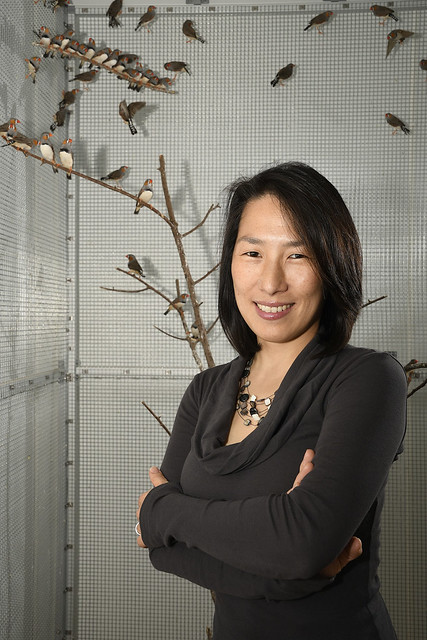Auburn professor using $1 million NSF CAREER Award to study physiological effects of stress
Article body
Does a small amount of stress change a person physiologically so he or she can handle large amounts of stress later in life?
Auburn University Assistant Professor Haruka Wada is using a recently awarded $1 million National Science Foundation CAREER Award to investigate stress responses in organisms and cells and how they link together. Scientists have long studied the responses separately, but the connection between the two is unknown.
"We think we know stress or stressors because we feel them every day, we talk about it every day, but when it comes to the physiology of stress, there are a lot of unknowns, and this is partly because how we respond to stress depends on what we’re feeling that day," said Wada of the Department of Biological Sciences.
"The way you perceive a physical, physiological or psychological stress is also influenced by what you’re currently going through and previous exposure to a similar stressor, including during childhood."
In her project, "Proteostasis to Allostasis: Integration of Cellular and Organismal-Level Stress Responses," Wada and her team are applying warm air as mild heat conditioning on juvenile zebra finch birds as a way to increase stress tolerance in adulthood. As the birds become adults, they are exposed to warmer air and are able to better tolerate those higher levels.
"So, the question is, what are the physiological changes that allow them to tolerate those stressors later on in life?" said Wada. "We often consider being under stress as a negative thing, but being under moderate amounts of stress can have positive effects such as enhancing memory or immune function."
The team hopes its findings will shed light on stress in humans. Though there are benefits of short-term, moderate stress, prolonged stress can cause long-term elevation of adrenalin and cortisol, which can lead to high blood pressure and suppressed growth, reproductive, immune and memory functions.
"Low socioeconomic status is a common stressor in our region and often correlates with unhealthy lifestyle choices such as tobacco use, excessive alcohol consumption, lack of physical exercise and unhealthy dietary choices," said Wada. "Those lifestyle and dietary choices increase the risk for hypertension, cardiovascular disease, obesity and diabetes."
As part of her CAREER Award, Wada will also work with the College of Sciences and Mathematics’ STEM-IQ program. The program trains middle and high school teachers from rural areas within the southeast region of Alabama to promote participation in science fairs and enhance the overall quality of science projects.
Wada is developing a module to educate students about stress and ways to cope with daily stressors. She will also open her lab to teachers and students to help them conduct research and prepare for science fairs.
The NSF Faculty Early Career Development, or CAREER, program is a foundation-wide activity that offers the National Science Foundation's most prestigious awards in support of junior faculty who exemplify the role of teacher-scholars through outstanding research, excellent education and the integration of education and research within the context of the mission of their organizations.
Related Media
Media interested in this story can contact Communications Director Preston Sparks at (334) 844-9999 or preston.sparks@auburn.edu.
Auburn University is a nationally ranked land grant institution recognized for its commitment to world-class scholarship, interdisciplinary research with an elite, top-tier Carnegie R1 classification, life-changing outreach with Carnegie’s Community Engagement designation and an undergraduate education experience second to none. Auburn is home to more than 30,000 students, and its faculty and research partners collaborate to develop and deliver meaningful scholarship, science and technology-based advancements that meet pressing regional, national and global needs. Auburn’s commitment to active student engagement, professional success and public/private partnership drives a growing reputation for outreach and extension that delivers broad economic, health and societal impact.





